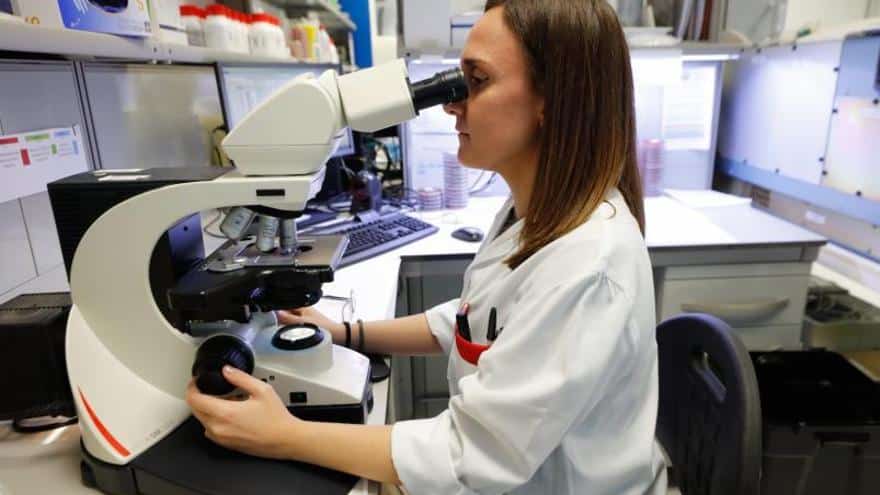“Legal implications of the serological diagnosis of HIV and the communication of results” is the title of the work with which the microbiologist of the Health Department Gemma Jiménez Guerra yesterday received the second prize of the Camilo José Cela award of medical humanities, from the foundation Patronato Científic del Colegio de Médicos de Balears. A project that has been carried out in collaboration with the law graduate Antonio Rodríguez and in which it is emphasized that an HIV test cannot be performed without the consent of the patient, “however well founded the suspicion” as well as the responsibility of the health systems in the establishment “of social and organizational ethics”.
Why is a microbiologist doing a paper on the legal and ethical implications of HIV serological diagnosis?
For me, the bioethics part is one of the parts of my daily work in medicine, that has interested me the most for a long time. But it is not covered much. I was thinking a long time ago about writing something like this. I didn’t start this work with the idea of submitting it for the award, but because I felt like dealing with that topic, reflecting on the right to privacy and the values of bioethics in HIV. It is something that is always in vogue and when I saw that this opportunity arose in the College of Physicians of the Balearic Islands, I took advantage of it. But I was already doing the work before. I did not have to run a lot to have it finished on time.
You say that it is a very popular topic. Are there still people who point fingers at people with HIV?
We have been talking about HIV for more than 40 years now, but knowing who has an infectious disease associated with certain behaviors is something that has been going on all our lives. It has always been. It’s been going on forever. No matter how much we try to educate and make people aware so that there is no discrimination, it is something that continues to happen, there are always people who do it. It doesn’t matter how many years go by. The idea is that people should be informed so that it happens less and less.
In your work you talk about informed consent when it comes to HIV testing. Why do you have to ask for it?
It is something that happens with HIV and has happened with other diseases throughout history. I was in a leprology course last week and it was very similar. It is something that happens when you have an infectious disease that is related to specific transmission characteristics and that are unknown, because it does not have to be exactly those ways in which you have been infected with HIV, leprosy or tuberculosis. When a disease is associated with behaviors that may lead people to think things about you that are incorrect, consent is sought. To think about whether you are able to withstand this possible positive diagnosis and also if someone around you needs to know if you have this pathology. The diagnosis of HIV carries social implications that can lead to some discrimination. But this is something that happens not only with HIV, but with other infectious diseases, even if the work is focused on HIV.
We have recently experienced this with covid, especially at the beginning.
Indeed. When you said that you had covid, they would say “you must have caught it because you were in the bar” or because you had not been in quarantine. It is exactly the same thing.
How do patients cope with a diagnosis? It is always said that Ibiza is a very tolerant island.
I do not work directly with patients, I am in the laboratory, but I think that the population of the island is quite aware of these issues. In Can Misses we have the Sexually Transmitted Infections Care Consultation (Caits) and also the PrEP (pre-exposure prophylaxis) and they are patients eager for knowledge and to know how to prevent it.
For the full article, please visit Diario de Ibiza website here.

